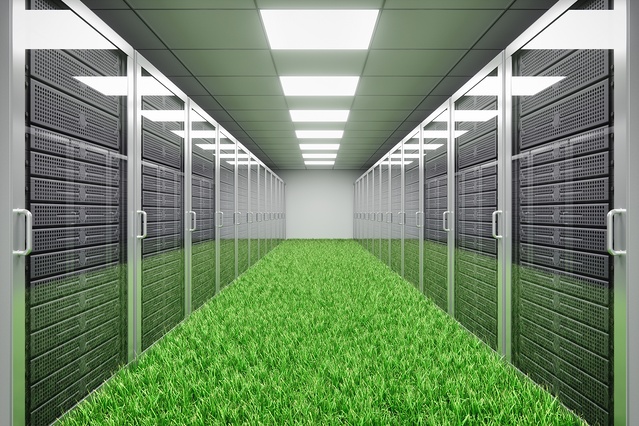The surging demand for data centers worldwide, including in the Philippines, has spurred a critical conversation about the environmental impact of these technology hubs. In a bid to align with sustainability goals, data center operators are increasingly striving for green operations by integrating renewable energy sources.
However, this transition is far from straightforward, as the pursuit of energy-efficient data centers encounters a host of challenges. These challenges, while formidable, present opportunities to reimagine the relationship between technology, energy, and environmental responsibility.

“I believe there are so many challenges in implementing green energy for data centers, because creating data centers and renewables are opposite. When you do data centers, of course you are contributing greenhouse gas emission. At the same time you are using green energy in order to reach net zero,” said Ruth Briones, CEO and President of Greenergy Solutions.
Paradoxical Challenge Between DC & Green Energy
The intersection of data centers and green energy represents a somewhat paradoxical challenge which lies in reconciling the energy-intensive nature of data centers with the push for green energy. .
This challenge highlights the necessity for innovative approaches and cooperative endeavors to minimize environmental repercussions while capitalizing on the opportunities presented by contemporary data-driven economies.
The escalating energy requirements of data centers, fueled by the constant growth in digital activities, stand as a formidable obstacle in the quest for carbon neutrality.
While renewable energy sources such as solar power play a crucial role in diminishing carbon emissions, addressing their intermittent availability and scalability concerns is imperative to guarantee the uninterrupted functioning of data centers.
“But how do we solve this challenge? It’s about looking at the principle of a circular economy. So when we say circular economy, you have a sustainable process to solve the problem of e-waste. So we may be using technologies that would dispose this e-waste into a sustainable output and create clean energy out of that,” said Briones.
Embracing Circular Economy Approach
The circular economy principle offers an intriguing pathway to tackling these challenges. Embracing this approach means adopting sustainable processes that not only reduce waste but also transform it into valuable resources.
Given the energy-intensive nature of data centers, applying this principle to data centers involves reimagining their role beyond that. E-waste, a byproduct of technology’s rapid evolution, is a prime example. Innovative technologies that can effectively manage and repurpose e-waste into clean energy sources could revolutionize the way data centers approach sustainability.
Moreover, adopting circular economy practices could yield economic benefits. Transforming e-waste into a sustainable output not only reduces the environmental impact but also creates new avenues for resource generation and economic growth.
This, in turn, incentivizes data center operators to invest in green energy solutions that enhance both their operational efficiency and their contribution to the global shift toward a zero-carbon economy.
Furthermore, in the shift towards greener alternatives, the economic considerations and cost implications of this transition have also been at the forefront of discussions.
Economic Considerations and Cost Implications
As a response to the financial factors and cost-related consequences associated with the shift toward green operations, Briones highlighted a significant development in renewable energy: the substantial decrease in the cost of solar power.
“Producing solar power is already cheap now. It’s gone deeper. So with the right installation, and the right technology and supplies, that’s the most appropriate and applicable,”.
The question of affordability, which once stood as a barrier to the widespread adoption of renewable energy solutions, is now being reshaped by the rapidly decreasing cost of solar technology. Solar power has become more accessible due to advancements in technology, streamlined installation processes, and increased availability of supplies.
This downward trajectory in solar power costs has important implications for data centers seeking to transition to renewable energy sources. The reduced expense of producing solar power means that the initial investment required for setting up solar installations has become significantly more attainable.
The pursuit of green energy for data centers is a worthy endeavor that can reshape the technology landscape while minimizing its environmental impact. Although the challenges are formidable, they present opportunities to foster innovative thinking and collaboration.
By embracing circular economy principles, data center operators can transform e-waste from a challenge into a sustainable solution, paving the way for energy-efficient and environmentally responsible operations.
Moreover, the right blend of technology, efficient installation practices, and quality supplies can make the shift to solar energy a financially prudent decision for data center operators.
As the world navigates toward a more sustainable future, the convergence of technology and renewable energy will hold a crucial position in determining the path we take ahead.

